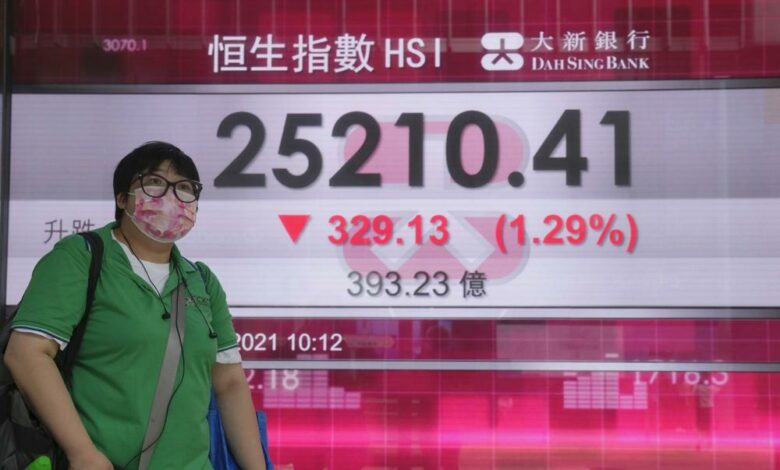
TOKYO (AP) — Global shares were mostly higher Tuesday, despite continuing concerns about rising COVID-19 cases in Asia and parts of the US and Europe.
France’s CAC 40 edged up nearly 0.1 percent in early trading to 6,693.02, while Germany’s DAX was up 0.5 percent at 15,970.67. But Britain’s FTSE 100 slipped 0.1 percent to 7,141.30. US shares were set to drift higher with Dow futures up 0.2 percent at 35,417.00. S&P 500 futures rose 0.2 percent to 4,535.50.
Japan’s Nikkei 225 benchmark rose 1.1 percent to finish at 28,089.54. South Korea’s Kospi jumped 1.8 percent to 3,199.27. Australia’s S&P/ASX 200 gained 0.4 percent to 7,534.90. Hong Kong’s Hang Seng recouped earlier losses to rise 1.3 percent to 25,878.99, while the Shanghai Composite added 0.5 percent to 3,543.94.
New coronavirus cases recently reached record highs in Japan, where a state of emergency has been extended through Sept. 12. Japan’s vaccine rollout, which got off to a slow start compared to other developed nations, stumbled recently when contaminants were found in Moderna vaccines, forcing the withholding of more than 1.6 million doses.
A survey released Tuesday showed China’s factory activity grew at a slower pace in August as export demand weakened. Officials have warned that demand for Chinese exports is likely to slow in the second half of the year.
Chinese factory and consumer activities have been dampened by flooding in July and tighter anti-coronavirus controls. The monthly purchasing managers’ index of the Chinese statistics bureau and an official industry group declined to 50.1 from July’s 50.4 on a 100-point scale on which numbers above 50 show activity increasing.
Global investors have their eyes on several key US economic reports this week, including consumer confidence on Tuesday and the closely watched monthly employment survey from the Labor Department on Friday.
Both could help investors better gauge the American economic recovery’s path, which will impact Asian economies as well, as it faces a surge in virus cases because of the more contagious delta variant.
Energy prices were down as the the full impact of Hurricane Ida is still being assessed. The storm will likely take a toll on the energy, chemical and shipping industries that have major hubs along the Gulf Coast, but the impact on the overall US economy should be modest so long as damage estimates don’t rise sharply and refinery shutdowns are not prolonged, economists suggested.
Benchmark US crude fell 76 cents to $68.45 a barrel. Brent crude, the international standard, declined 58 cents to $72.83 a barrel.
In currency trading, the US dollar was unchanged at 109.92 yen. The euro cost $1.1822, up from $1.1795.
___
AP Business Writer Damian J. Troise contributed to this report.




